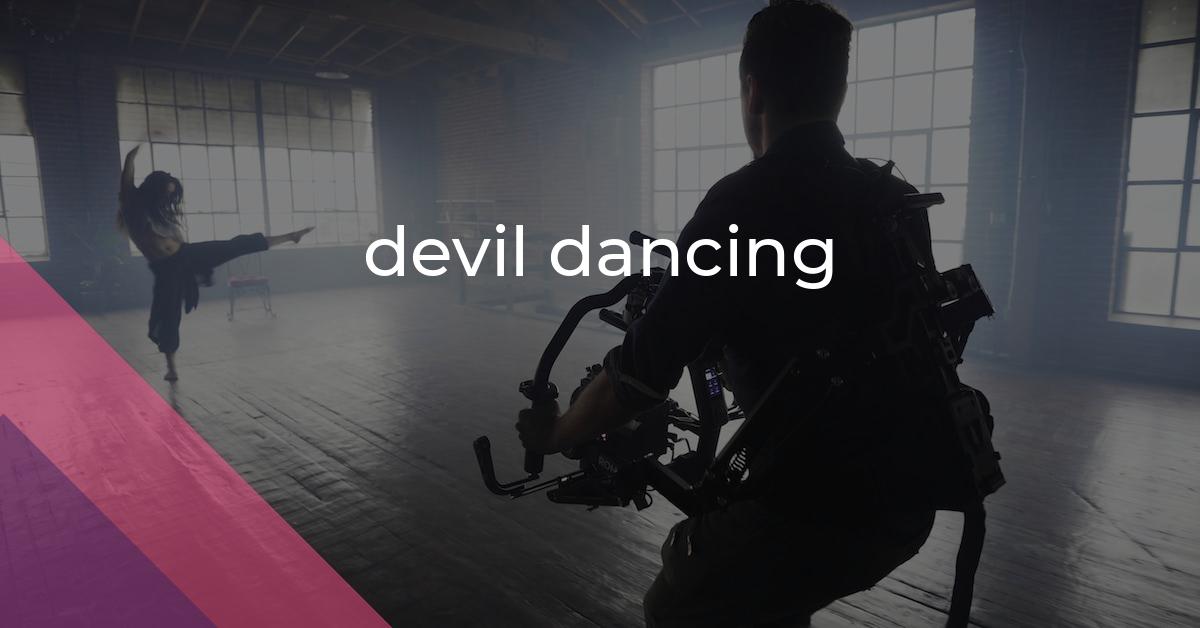devil dancing: Idiom Meaning and Origin
What does ‘devil dancing’ mean?
The idiom "devil dancing" refers to engaging in reckless or immoral behavior, often in a carefree and uninhibited manner. It implies a disregard for consequences and a willingness to indulge in temptation or forbidden pleasures.

Idiom Explorer
The idiom "kick up one's heels" means to relax, have fun, or engage in lively enjoyment and uninhibited behavior.
The idiom "in the act" means to be caught or seen while doing something, especially something wrong or forbidden. It implies being caught in the midst of performing an action or behavior, often illicit or secretive in nature.
The idiom "go wild" means to become extremely excited or enthusiastic, often losing control of one's behavior or actions.
The idiom "go rogue" means to act in a rebellious and unpredictable manner, disregarding rules or expectations. It refers to someone who goes against the established norms or authority, often causing disruption or chaos.
An idiom that refers to someone who is involved in inappropriate or illegal activities, particularly related to child exploitation, resembling the actions of the musician Gary Glitter.
The idiom "for the hell of it" means doing something without any particular reason or purpose, simply for the sake of doing it.
A "folk devil" refers to a person or group who is portrayed as a threat to society or social norms. They are often scapegoated and blamed for various problems, leading to moral panic and public outcry.
The idiom "fan dance" refers to a situation where someone deliberately conceals their true intentions or motives behind a showy or distracting display, similar to the traditional dance performed with decorative fans used to hide the body. It implies a sense of deceit or manipulation.
Unveiling the Mysterious Ritual
Devil dancing is a term that is not widely known or used in everyday language, but it has its origins in folklore. It refers to a traditional dance performed as part of religious rituals in certain cultures. This dance is believed to invoke or communicate with spirits or supernatural beings, and it often involves the use of masks and intricate movements. Devil dancing is typically associated with cultures that have strong belief systems and traditions related to spiritual practices.
Metaphorically, the term devil dancing has been used in literature and other forms of art to denote deceptive or manipulative behavior. When someone is described as devil dancing, it means they are using charm, cunning, or trickery to achieve their goals. It conveys a sense of slyness or cleverness that may not be apparent to others.
It's important to note that devil dancing is not commonly used in everyday language and may be unfamiliar to many people. However, writers and artists have employed this metaphorical aspect of devil dancing to convey specific meanings in their works. By tapping into the rich symbolism associated with this idiom, they are able to evoke certain emotions or concepts.
As for its origins, the specific etymology of devil dancing is unclear. While the term seems to have emerged from cultural practices that have existed for centuries, there is no definitive evidence about its exact origins. The mystery surrounding its etymology adds to the allure of this idiom.
Devil dancing is an idiom with fascinating origins rooted in traditional religious dances. Its metaphorical usage in literature adds depth and complexity to its meaning, depicting individuals who employ deceitful or manipulative tactics. Though its specific etymology remains unknown, the various interpretations of this idiom contribute to its enduring intrigue.
The idiom "dance with the devil" is closely related to devil dancing. This phrase is often used to describe a situation where someone engages in dangerous or risky behavior, knowing that there will be negative consequences. It implies a willingness to take risks or make compromises that may have serious repercussions. When someone chooses to "dance with the devil," they are knowingly stepping into a dangerous situation.
The phrase "dance on nothing" is also related to devil dancing. It is used to describe a situation where someone is in such a precarious position that they could fall or fail at any moment. It conveys a sense of instability or uncertainty, as if someone is on the edge of a precipice. To "dance on nothing" is to live on the brink of disaster or failure.
Devil dancing is a term with both literal and metaphorical meanings. It originated from traditional religious dances and has been used metaphorically in literature and art to depict deceptive or manipulative behavior. While its exact origins are unknown, the richness of its symbolism and the various interpretations of this idiom contribute to its enduring intrigue. The related idioms "dance with the devil" and "dance on nothing" further add to the complexity and depth of devil dancing.
Example usage
Examples of how the idiom "devil dancing" can be used in a sentence:
- "Don't join in with their devil dancing, it will only lead to trouble."
- "Her provocative behavior at the party was like devil dancing, attracting attention for all the wrong reasons."
- "The political rally turned into a chaotic scene with protestors and counter-protestors engaged in a dangerous devil dancing."
The idiom "devil dancing" can be used figuratively to describe engaging in reckless or provocative behavior that is likely to cause trouble or chaos. It implies a disregard for consequences and a reckless pursuit of personal desires or intentions.
More "Entertainment" idioms



